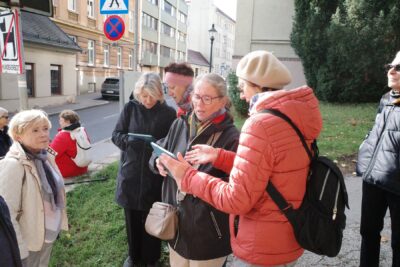13 January 2011
At a meeting of the Disability Intergroup of the European Parliament on 13 January, the MEP Mr Kósa , the Vice-President of the European Commission, Mrs Viviane Reding and the european Disability Forum (EDF) President, Yannis Vardakastanis, discussed the new European Disability Strategy.
In her presentation, Mrs Reding stressed the importance of appying a human rights approach to disability as required by the UN Convention on the Rights of Persons with Disabilities, adding that this was a milestone for disabled persons rights and recalling the EP resolutions of April 2009. She further highlighted the fact that one should not just look at the existing disabled, but more broadly as many more will become disabled due to population ageing and that a much higher number experiencing mobility, hearing, sight etc problems is to be foreseen in future. Disability will become mainstreamed with the ageing population.
The 10 year disability strategy is of utmost importance. It is meant to eliminate barriers in everyday life (accessibility, participation, equality, employment, education and training, social protection, health, external relations). The European Commission will see what can be done to put ideas in Convention into practice. Convention places obligations on member states and European institutions to apply it in practice.
Mrs Reding also underlined importance of civil society which has to be involved in the implementation process of the European Disability Strategy – this discussion among NGOs helps keep the discussion on the agenda – and also a need for the Commission to coordinate inside its services and with other institutions.
EDF have made a proposal to strengthen the composition and role of the Disability High Level Group. The Commission will see how to implement that in the best way.
The EC continue to support the negotiations in the Council on the draft directive which unfortunately is blocked. It contains important elements on accessibility.
In parallel, the Commission is proposing legislation to address the technical content of accessibility.
The EC Vice-President also mentioned the following issues:
- The market opportunities that the increased number of people with disabilities will present. If we create goods and services for the disabled, we also create an industry and economy for these products. The EU should become an exporter of those goods and services. It’s a real economic opportunity. Standardisation must cover ICT, built environment and Design for All.
- A global standardization should be put in place to bring coherence in standards and improve standards of use. The Commission will seek to get all actors on board so public buildings and spaces become more accessible and will do study to address issues at stake. In 2012, the EC will propose a Accessibility Act. They count on the European Parliament (EP)’s support for this
- Now with the Lisbon Treaty, the legal basis for disability is mainstreamed; and the Charter of Fundamental Rights ensures both protection in decision making and implementation at the national level.
- There’s a responsibility at EU level to develop actions that can lend support to the national level i.e. to support employment, there are diversity charters signed both by employers/employees.
- Disability should be highlighted as a human rights issue. The Commission plans to analyse, develop indicators, compare the situations of disabled and non-disabled regarding employment, education and poverty. It will provide possibilities to come back to the subject regularly. NGOs will be able to use these figures.
There are important gaps to be filled, and the Commission will propose building material to close them. It’s important for the EP and national parliaments to meet on the disability pact.
Mrs Reding presentation can be viewed at: https://bit.ly/fw81Qi






